At the up coming UK general election there’s a realistic possibility of a hung parliament. All serious polls point to a Conservative election win, but with UKIP’s strong showing in the 2009 EU elections and the Tories appearing to be turning their back on Euroscepticism, could Eurosceptic UKIP split the Conservative vote (Eurosceptic Conservative MPs created UKIP after all) in key seats and prevent the Tories a clear majority over the Labour party?
If something like this happens, it’s probably the Liberal Democrats who will benefit from a hung parliament with the possibility of a coalition government between the Conservatives and the Liberal Democrats or the Labour party and the Liberal Democrats.
Hung Parliament Coalition Government Poll
[poll id=”19″]
I suppose it all depends how Eurosceptic the British public are and how important Europe is as a reason to vote during a general election, can UKIP match it’s EU election results or will their support slip during what many British people see as a ‘real’ election: local and EU elections are notorious for protest voting which tend not to equate to similar results at general election time.
Could make for interesting politics after the general election :-)
Hung Parliament Political Cartoon
Above is a political cartoon by my youngest son, Caleb (age 13).
Interesting UK Hung Parliament Facts
Britain doesn’t do hung parliaments :-) Since World War II we’ve had one hung parliament: in 1974 Labour won 301 seats the Conservatives 297 seats.
At the next general election there are 650 parliamentary seats (up 4 from 2005).
A majority requires 326 seats won by one party.
The Conservative party to win a clear majority requires a massive swing from Labour to Conservative.
Since World War II there’s only been two general elections with a similar swing from one party to another.
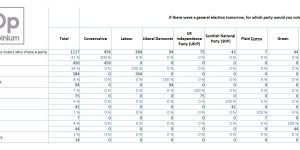
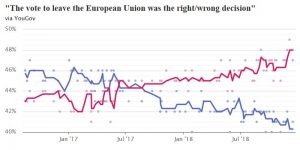
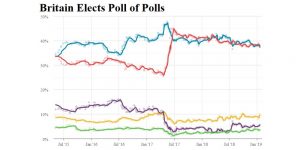
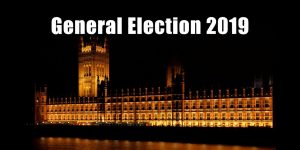

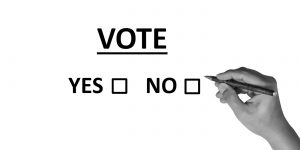






Listening at the moment to plaid/SNP and they are salivating at the prospect of a hung parliament, as most would know when parties get to gether and horse trade it is for the benefit of the country, yeh right it will be a bun fight every one will be out for them selves.
Do you know if just one of the parties would have the guts to say
We are going to STOP giving children and young adults the rights to housing just for having a baby
STOP all the Scroungers who have NEVER worked getting money for old rope
STOP making it more lucrative to BE OUT OF WORK
I can honestly think that none of the parties would have any people voting for them
Just imagine how much money the country would SAVE so they could give the OAPs and people that have worked all thier lives help! The National Health Education Cancer Drugs all these causes would be covered JUST IF WE TOOK A LEAF OUT OF THE BOOK OF THE USA where you DONT GET PAID TO BE OUT OF WORK to the extent that you DONT NEED to go out to work
You DONT get money you get FOOD COUPONS
What a Better world it would be IF one of these 3 parties could put into practice what they knew would get our country out of the Financial Mess we are now in .. It will only Get Worse with a HUNG Parliament and lets be honest the main reason that Labour is the most popular is solely because they help people who dont WANT to help themselves for the most part
This is completly spot and i agree with you 100%. What a state our country is in ey.
There is a HUGE misconception on how much people actually recieve on benefits. The goverement issues the money on a means tested basis. What this means is they have worked out the BARE minimum of how much BASIC food, gas and electricity cost. It is not and will NEVER be a comfortable lifestyle for anyone. The idea that people do not want to work and do not want to earn more money is ridiculous! There are those who take advantage, but there is ALWAYS those people who will take advantage wherever possible, and everyone else should NOT have to suffer because of them.
Besides if you don’t give benefits when people do have babies what would our country become?? There has always been the rich and the poor, and what our country has quite RIGHTLY done is bridge the gap between the two. Before the benefits system there were still those out of work and still those who had babies young, the difference was the rich let those people suffer. We need to look at the big picture, and think what kind of a country would we be if we allowed people to basically rot on the streets because they have had a child, or have disabilities or simply lost their job… Or maybe simply just didnt have the parents that some people are LUCKY to have and hense wern’t given as easier ride through life.
I had a child when I was 18 and had to go onto benfits. I am now 21 studying financial mathematics at university. All the money I recieved in benefits I will be paying back in tax within my first few years of working. I got pregnant had no place to stay and had not choice but to turn to the council. I first lived in a hostel, then was moved to tempory accomidation on one of the worst estates in my area, full of gangs and drugs, and finally was moved to my permenant place where I am very happy now. I was in the benefits office every single week trying to sort out my benfits, having the local council leave you with NO money until you find all the documents they require, having the staff treat you as if your a criminal.
I got myself into it so I am not complaining I am writing this to make the point that it is NOT easy at all to have a baby with no money, no family support and no home. Some girls are stupid enough to have babies purly for a home and money, but then they are in for a rude awakening.
It does become easier and once you have a place and your benefits are coming in every week, because then you do not have to work as they won’t take those benefits away. However can you have buy a car, go on holiday, buy nice clothes, go out to a nice resterans? The simple answer is no. You have enough money to get by and live half the normal life others do. I’m now a student and have more money living off student loans then I did on benefits.
I have studied the benfits system inside and out and there are many reasons why people are not working, one huge factor is that rents are just way too high for people on low income jobs to afford, another is the moral and self confidence in people from bad backgrounds are so SO low. It is never as simple as those who are blessed with and easier life make out.
The unemployment in this country is so high now there actually isn’t any jobs. If you go and try to get a job off the job centre website when you have little or no qualifications you will see the compitition people are up against. What this country needs to do is show the people on benefits, show those raising children, show those even on disabilities that life would be better when working. There is a way to gain enough qualifications and experience to work your way out of the bottom up to the top, and then give back to our country.
People do not want to feel worthless it isn’t in our nature.
What a sad and bitter person you are.i sometimes despair at this world, i hope you never find yourself in a postion where YOU need help.
Our country is not in a state because of government benefits, and i think to tar all young people with babbies as scroungers and benefit thieves is a very narrow minded and idiotic view of the problem.
The issue should never be the benefits, but a vicious cycle of a damaged public sense of right and wrong. It all stems from around the 1970’s where we saw the first of what we could consider modern council estates. Parents on those estates began to loose interest in their children which lead to unruly and socialy undesirable behaviour.
This attitude was passed to their children and then their childrens children. It is no wonder we have ferral gangs when the morality of the country has been in decline for decades.
well said i think we forget sometimes that there are people that do want to work but cant find it or actually cant do it, not to say some people do take advantage which is wrong but you cant make the people who are trying suffer
I agree with you it is not ALL about the Benefits
I agree with you also when you say quote
(The issue should never be the benefits, but a vicious cycle of a damaged public sense of right and wrong.)
However regardless that you think I am not a narrow minded idiot Iain.. I agree that it is NOT all that dont want to work .. It is unfortunately however the vast majority, and it is the Goverment that have made the system such…. so that it is NOT worth thier while to WORK! EASY MONEY…hence they stay on the benefit train ..
I believe that if you were to take a poll( an honest one ) on how many really wanted to get up in the morning- and how many were happy doing what they wanted by that I mean
1.Not having to pay full rent as Gov Subsidise that
2.No council tax
3.Free school dinners and all the other perks that come with NOT bothering to work .. you would be quite amazed !
My problem is not actually with these individuals. it is the GOV policy that has MADE these individuals feel the way they do … You appear to blame the 1970’s? I was a young woman then who had a young child a husband that had never been out of work since he was 15 who worked for British Steel he lost his job we owned our own home then but lost the house ( was no help those days ) .. We had no place to live .. but I was unable to qualify for a council house just because I had a Mum and Dad who had a spare room !..
If parents were made to take more responsibilty for thier children maybe there would not be so many daughters that had children which they were unable to afford or be in a position to keep.. if just that changed imagine how much money the country would SAVE
Hope that makes you think … I am not an idiot I am just trying to say that yes people who want to work and make every effort to find work should get help.. but the ones that WONT work should lose benefits and be forced into working at whatever job was made available to them that is all i am saying
I totally agree, i have a friend whose a single mother of 2 young children, has no family living near, has survived domestic violence and cancer, she is doing courses in between school hours so when her children are old enough she has the qualifications to get a job. I also have a friend who is married with 1 child. Neither work and have not worked for many years. Both are quite able to work and 1 has even been offered jobs but refuses them on the basis they are better off on benifits. I have 4 children, my husband works full time to support us and when he was off work with ill health i went to work. There are jobs around but ppl are too fussy and want money for nothing.
Whoever wins the election today 6.5.10 remember
you dont need to pay back the debt so quickly just think about this
After world war two we owed billions of pounds to the usa in weapons…etc and that was paid of in the year 2006!!!
FOCUS on getting people back to work and then they will pay tax and that will go into the treasury.
If the debt was so serious then how come we are spending millions on the war in afghanistan and why arent the mps cutting thousands of pounds of their expenses and a few weeks ago the daily express reported the mps gave themselves a payrise……makes you think how much money is really tucked away there.
Only a fool would want a consistant prime minister becuase out of the three thats not going to happen. Britain needs help and NOT from America, were knee deep in crap and need a helping hand and thats all the party leaders have to face…..a hung parliament would maybe knock some sense into them
All parties got positif and negatif.
All parties changes over time… Changes is needed now as it cannot get worst as it is…(your voice is not heard to start with) Tory and Labour (i’m afraid) have changed a great deal over the years and there is no use to live in the past.
All I can say is the people must choose a main party… not the parties involved doing it for you… I can’t believe that the less populare party will choose who ‘s going to be in power for you! You should (I’m french:-) now vote for two party instead of 3 finalists. This will be farer and d.e.m.o.c.r.a.t.i.c but I might point out that 2 Millions more voters have voted for Tory… and yet Gordon might be in power for the next 4 months and Labour might carry on without your willing! again… I shall say… r.e.v.o.l.u.t.i.o.n is in order! lol